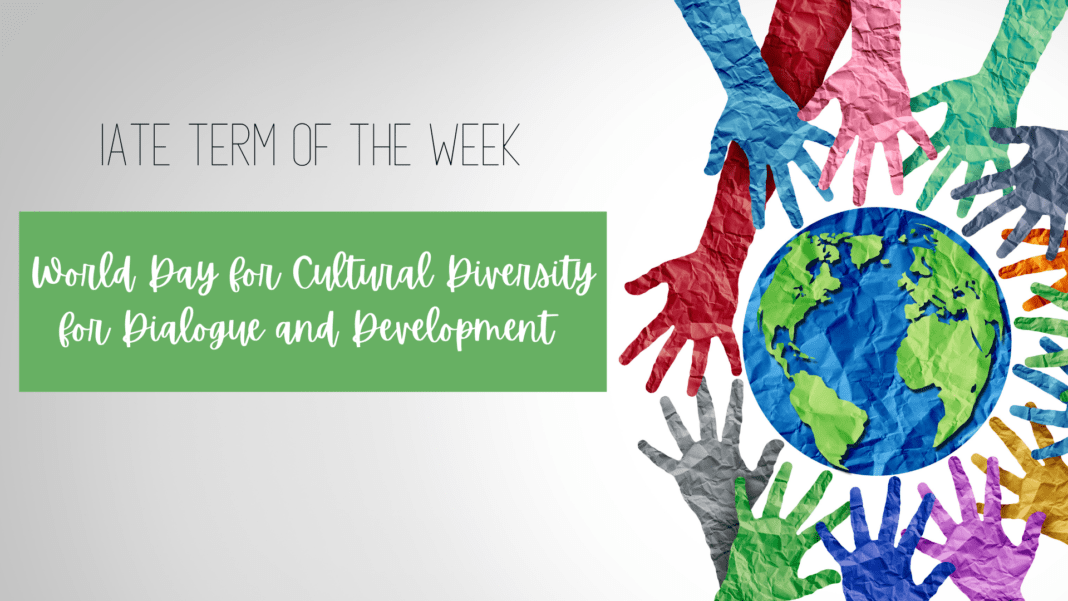Each International Day is an opportunity to inform the public on themes related to major issues such as human rights, sustainable development or health. These days are also an opportunity for the UN system, public authorities and civil society to organise awareness-raising activities and mobilise resources.
Today we will focus on the World Day for Cultural Diversity for Dialogue and Development

The origin and the objectives
In 2001, the UNESCO adopted the Universal Declaration on Cultural Diversity and, in December 2002, the United Nations General Assembly declared 21 May as the World Day for Cultural Diversity for Dialogue and Development.
Every year on 21 May, the World Day for Cultural Diversity for Dialogue and Development celebrates not only the richness of the world’s cultures, but also the essential role of intercultural dialogue for peace and sustainable development. “Only dialogue can serve as a basis for a pluralistic and cultural society,” says Elsbeth Müller, UNICEF Switzerland’s Secretary General for Integration, “and mutual understanding between cultures plays an essential role here”.
According to the Universal Declaration on Cultural Diversity adopted by UNESCO in 2001, this day represents the need to “strengthen the potential of culture as a means to achieve prosperity, sustainable development and peaceful global coexistence“.
For the first time, it recognises cultural diversity as the “common heritage of humanity” and considers its safeguarding as a concrete and ethical imperative inseparable from the respect of human dignity. But it is also an opportunity to promote culture and highlight the importance of its diversity as a vector for inclusion and constructive change. This day is an opportunity to celebrate the many forms of culture, both tangible and intangible, from the creative industries to the diversity of cultural expressions, and to reflect on how these contribute to dialogue, mutual understanding, and social, environmental and economic drivers of sustainable development.
This day provides an opportunity to better know and appreciate what we owe to other cultures, and to appreciate the diversity of their contributions, their uniqueness, their complementarity and their solidarity.
Knowing and recognising our differences, respecting them as the basis of our own identity, gives the centuries to come the chance to blossom at last, free from identity conflicts of all kinds.
Cultural diversity is a fundamental human right. To fight for its promotion is to fight against cultural stereotypes and fundamentalism.
Public authorities are increasingly aware of the need to develop intercultural dialogue in order to strengthen peace, security and stability at the global level.
References:
-UNESCO, 2022. Journée mondiale de la diversité culturelle pour le dialogue et le développement. (ONLINE) Available at https://fr.unesco.org/commemorations/culturaldiversityday/2021
-Nations Unies, 2022. Journée mondiale de la diversité culturelle pour le dialogue et le développement 21 mai. (ONLINE) Available at https://www.un.org/fr/observances/cultural-diversity-day
-UNESDOC, Bibliothèque numérique, 2017. Rapport mondial sur la culture pour le développement urbain durable. (ONLINE) Available at https://unesdoc.unesco.org/ark:/48223/pf0000249572
-Assemblée Générale des Nations Unies, 2003. Résolution adoptée par l’Assemblée générale. (ONLINE) Available at https://www.un.org/ga/search/view_doc.asp?symbol=A/RES/57/249&Lang=F

Written by Marina Clavel
Born in Paris, France, in 1998. She completed her BA in Intercultural Management at Bordeaux University. She moved to Luxembourg in 2021 for her current Masters degree in Learning and Communication in Multilingual and Multicultural Contexts at the University of Luxembourg. Her working languages are French, English and Portuguese. She is a study visitor in TermCoord in the Communication Department in May 2022.

